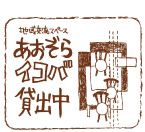Our mission
Rapid postwar industrialization and urbanization in Japan brought about severe pollution, damaging the health of many people and even taking many lives. In the course of these events the government, businesses, and citizens were involved in a variety of disputes. As a result of the labors and efforts that these parties made from their respective standpoints, we are moving forward little by little in enacting measures to rectify this situation.
At a time when we need to build a sustainable society for the coming new century, the experience of pollution in Japan — which is both an unfortunate page in our country’s history, and a valuable lesson for mankind — must be transmitted to future generations and to the rest of the world so that it might serve to avert similar misfortune.
The Osaka Nishiyodogawa Pollution Lawsuit, with the largest-ever number of plaintiffs, was representative of pollution lawsuits in Japan. In March 1995 the plaintiffs and the nine defendant companies arrived at a compromise, and both sides affirmed that they would work together to rejuvenate the Nishiyodogawa area. On the occasion of this historic settlement, and having learned an important lesson from the terrible pollution of the past, it is our intention to bring together broad-based citizen power and work to rejuvenate pollution-debilitated areas, as well as to proceed with a kind of community development that will serve as a model for a pollution-free world.
Redeveloping polluted areas does not merely involve rejuvenating, recreating, and preserving the natural environment. In our way of thinking such redevelopment depends on recovering and improving the health of local citizens; recovering and fostering community functions lost on account of economics-first development; rebuilding relationships of trust and cooperation among government, business, and citizens; and other such efforts. This necessitates basing initiatives on the idea of “participation” as proposed in the Basic Environment Plan and, from a citizens’ standpoint, obtaining the cooperation of local authorities, businesses, and all other social entities.
In view of the serious nature of pollution problems in Asia and around the world, we believe it is very meaningful to provide information on Japan’s pollution experience and the lessons learned from it. Especially important is not limiting information to technical matters, but presenting the practical actions — the struggles and labors — of citizens and pollution victims, as well as industry and the variety of other social entities, in implementing measures to achieve redevelopment. We hope to be of service in arresting pollution around the world by providing information on Japan’s pollution experience, and by building an international citizens’ network meant for redeveloping pollution-debilitated areas.
In view of the foregoing consideration, and from a global-citizen standpoint, we hereby establish the Center for the Redevelopment of Pollution-damaged Areas in Japan to carry out projects including surveys, research, interchanges, and environmental studies, which will make Japan’s pollution experience useful in community development around the country, and in grassroots international cooperation.







